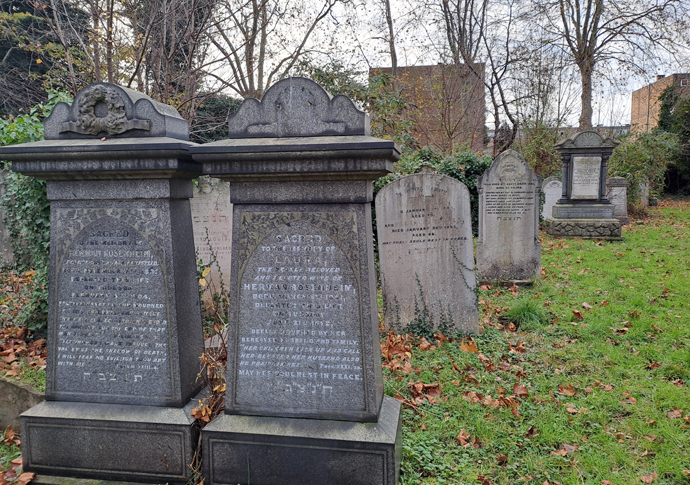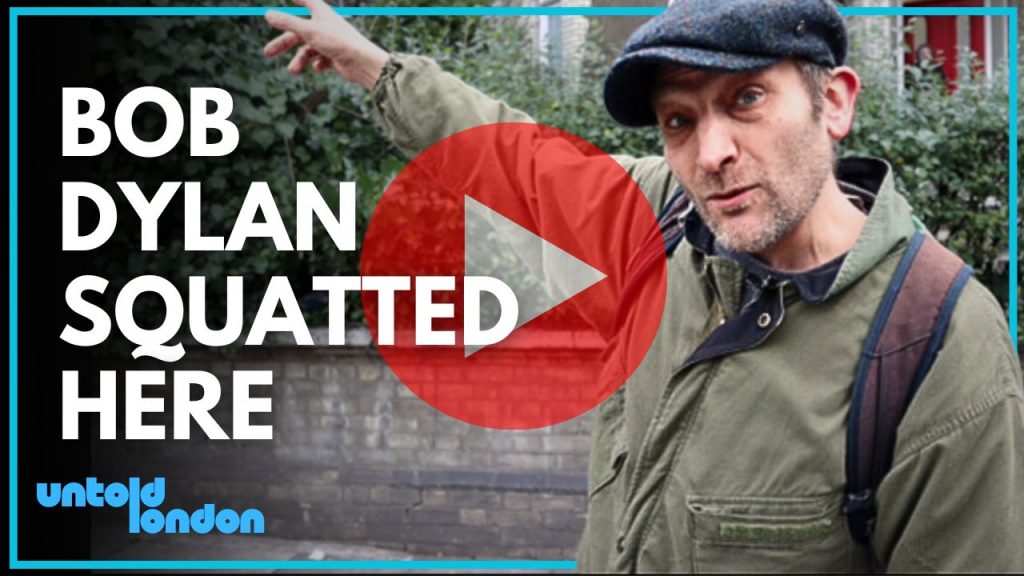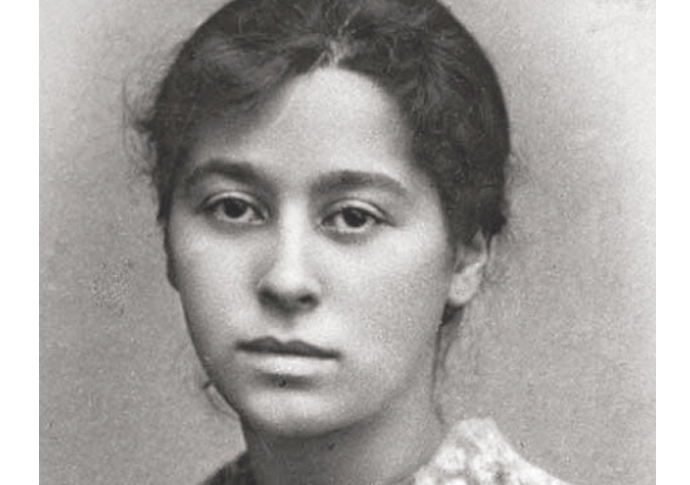New funding plan to restore historic graveyard
Many pioneers of liberal Judaism are buried at Balls Pond Road Cemetery
Friday, 24th January 2025 — By Daisy Clague

The cemetery in Kingsbury Road

WATCH OUR HISTORY CHANNEL, UNTOLD LONDON, ON YOUTUBE
A HISTORIC cemetery in Mildmay where many pioneers of liberal Judaism are buried will undergo a major restoration following an announcement of new funding.
The Balls Pond Road Cemetery is an unassuming site in Kingsbury Road, near Dalston, hidden behind high ivy-clad walls and locked gates, abutting St Jude and St Paul’s Church of England primary school.
It was opened in 1843 by the West London Synagogue, based in Paddington, and the 900 or so gravestones and monuments – many bearing Hebrew inscriptions – have become increasingly overgrown since the last burial took place there in 1951.
A £190,000 grant from the National Lottery Heritage Fund will now go towards restoring the site and developing it as an educational and cultural landmark.

Amy Levy
Ward councillor Jenny Kay, who helped secure the grant, explained: “This project is not just about preservation, it’s about restoring a vital community asset and ensuring the site becomes a resource that benefits all communities.”
Andrew Stone, president of the West London Synagogue, said: “This project will be the start of a longer-term plan to restore a historic and fascinating cemetery, which is an important part of our British-Jewish heritage.”
The cemetery is the most significant burial ground of the British Reform Movement, a branch of Judaism, also referred to as liberal or progressive Judaism, which came to the UK from Germany and America in the 19th century.
It sought to adapt Judaism to the modern ideas of ethics and rationalism.
The West London Synagogue of British Jews, founded in 1840, was the first Reform Jewish community in the country and many of the movement’s pioneering members are buried at the cemetery, including Sir Isaac Lyon Goldsmid, who also co-founded University College London in Bloomsbury.
The ashes of Amy Levy, poet, novelist and the first Jewish woman to attend Cambridge University, are also scattered at the site.